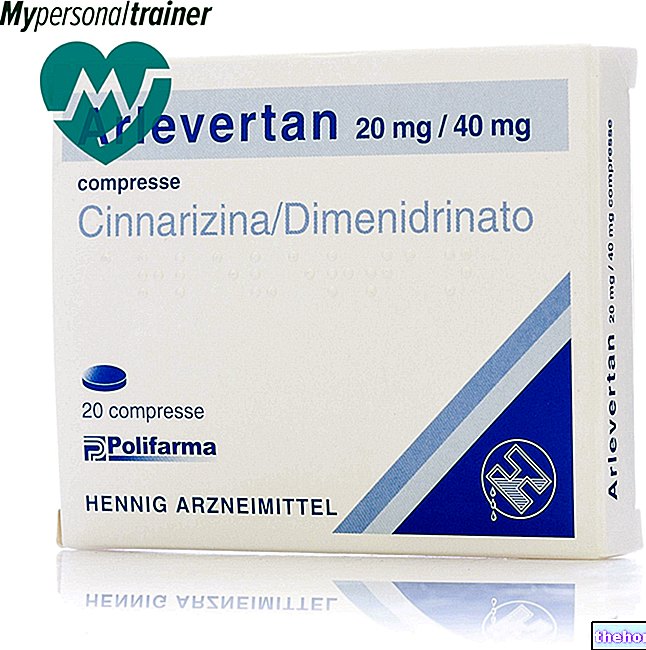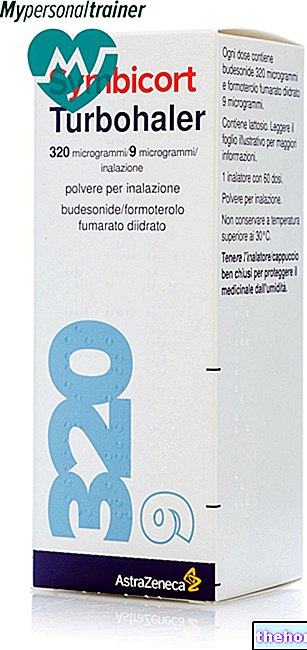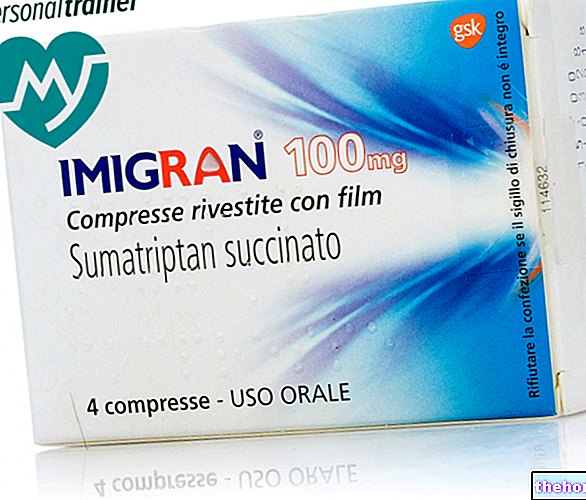Active ingredients: Electrolytes (Sodium chloride, potassium chloride, calcium chloride dihydrate, sodium acetate)
RINGER ACETATE S.A.L.F. solution for infusion
Why is Ringer Acetate used? What is it for?
RINGER ACETATE S.A.L.F. is a solution for infusion to be injected directly into a vein, which contains a combination of active substances: sodium chloride, potassium chloride, calcium chloride dihydrate and sodium acetate trihydrate.
This medicine is indicated to provide the body with water and mineral salts following losses of extracellular fluids and electrolytes, when it is necessary to correct mild or moderate acidotic states (ie when your blood is too acidic)
Contraindications When Ringer Acetate should not be used
Do not use RINGER ACETATE S.A.L.F.
- if you are allergic to sodium chloride, potassium chloride, calcium chloride dihydrate, sodium acetate trihydrate or any of the other ingredients of this medicine (listed in section 6);
- if you have severe kidney problems (kidney failure);
- if you have high levels of calcium in the blood (hypercalcaemia) and urine (hypercalciuria) or suffer from severe kidney disease;
- if you have high levels of sodium in the blood (hypernatremia) or other mineral salts (hydrosaline plethora);
- if you have high levels of potassium in the blood (hyperkalaemia) or decreased ability to eliminate potassium (potassium retention);
- if you have an "abnormal heart beat called ventricular fibrillation, because calcium chloride can increase the risk of irregular heartbeat (arrhythmias);
- if you have kidney stones, which may increase with the administration of calcium;
- if you have a chronic systemic disease called sarcoidosis, which can potentiate the increase in blood calcium levels (hypercalcaemia);
- if you have severe liver problems (severe liver failure);
- if you have blood clotting problems (hypercoagulability);
- if you are taking medicines for heart diseases called cardiac glycosides (see section Other medicines and RINGER ACETATO S.A.L.F.);
- if you have a disease of the adrenal glands (Addison's disease) and are not undergoing any therapy to treat it;
- if you experience painful and short-lived muscle cramps (heat cramps);
- if the patient is a newborn (<28 days), RINGER ACETATO S.A.L.F. (or other calcium solutions) must not be administered concomitantly with ceftriaxone (an antibiotic), even if separate infusion lines are used. There is a fatal risk of particle formation in the infant's bloodstream.
In case of blood transfusions, the solution should not be administered through the same infusion catheter with whole blood due to the possible risk of clotting.
Precautions for use What you need to know before taking Ringer Acetate
Talk to your doctor or nurse before using RINGER ACETATE S.A.L.F.
This medicine must be given to you as a "very slow infusion, as" potassium intoxication may occur which can lead to death from loss of heart function (cardiac depression), problems with irregular heartbeat (arrhythmias) up to "cardiac arrest (See How to use RINGER ACETATE SALF).
Due to the presence of sodium, this medicine should be administered with caution in the following cases:
- if you have heart problems (congestive heart failure, heart failure) or kidney problems (severe kidney failure, reduced kidney function);
- if you have an accumulation of fluid (edema with salt retention) both in the lung (pulmonary edema) and associated with swelling of the ankles and legs (peripheral edema);
- if you are taking medicines for the heart (medicines with cardiac inotropic action) or anti-inflammatory medicines, corticosteroids or hormonal medicines (corticotropins);
- if you have high blood pressure (hypertension);
- if you have a disease called pre-eclampsia during pregnancy.
Due to the presence of potassium this medicine should be administered with caution in the following cases:
- if you have severe kidney problems (kidney failure), as it can cause potassium retention;
- if you have heart problems (heart failure) and are taking other heart medicines (digitalis);
- if you have adrenal gland disease (adrenal insufficiency);
- if you have severe liver problems (liver failure);
- familial periodic paralysis (occasional episodes of muscle weakness);
- if you have a disease characterized by muscle stiffness (myotonia congenita);
- if you have recently undergone surgery (early postoperative stages).
Due to the presence of calcium, this medicine must be administered with great caution in the following cases:
- if you have kidney problems (including chronic kidney failure) or heart problems, as this may increase the risk of irregular heartbeat (arrhythmias);
- if you have received a blood transfusion, as the calcium ion concentrations may differ from those expected;
- if you have lung problems which can cause the heart to enlarge (cor pulmonale);
- if you have trouble breathing (respiratory failure) or have a decrease in blood pH (respiratory acidosis);
- if you have low levels of water in the body (dehydration) or have an imbalance of mineral salts (electrolyte imbalance);
- if you have low blood pressure, as the administration of calcium chloride can cause vasodilation resulting in a lowering of blood pressure.
Calcium chloride solution is irritating and therefore should not be given by injection into the muscle (intramuscular route) or under the skin (subcutaneous route) or into the tissue surrounding blood vessels (perivascular), as damage and death of the blood vessels can occur. tissues (necrosis).
Due to the presence of acetate, the medicine should be used with caution in people with increased pH (metabolic and respiratory alkalosis) or acetate levels in the blood, as in the case of people with liver problems (mild or moderate hepatic insufficiency ).
During treatment with this medicine, your doctor will need to periodically check your heart's function by means of electrocardiograms and the concentration of mineral salts, fluids, osmolarity and pH of the blood. Calcium concentrations in the blood and urine should be monitored frequently to avoid hypercalciuria (high levels of calcium in the urine), as it can lead to an increase in calcium levels in the blood (hypercalcemia).
Children
As with other calcium-containing solutions, concomitant treatment with ceftriaxone is contraindicated in neonates (aged "less than or equal to 28 days) (see section" Other medicines and RINGER ACETATE S.A.L.F "and" Possible side effects ").
Interactions Which drugs or foods can modify the effect of Ringer Acetate
Tell your doctor if you are using, have recently used or might use any other medicines.
This medicine should be given to you with caution if you are taking:
- medicines used to lower blood pressure such as potassium-sparing diuretics, ACE inhibitors which cause a decrease in the levels of the hormone aldosterone, because they can lead to an increase in potassium in the blood (hyperkalaemia), in which case it is necessary to monitor closely blood potassium levels;
- steroidal anti-inflammatory medicines (corticosteroids) which can cause sodium and water retention, leading to fluid accumulation (edema) and increased blood pressure (hypertension).
Due to the presence of calcium chloride, RINGER ACETATO S.A.L.F. can interact with the following medicines:
- thiazide diuretics, used to treat high blood pressure, as they can cause increased calcium levels in the blood (hypercalcaemia) due to decreased renal excretion of calcium;
- cardiac glycosides (digitalis), digoxin and digitoxin, used for heart problems, as concomitant use can increase the risk of irregular heartbeat (arrhythmias);
- verapamil (and other calcium channel blockers), used to treat high blood pressure, as concomitant use may decrease the antihypertensive effect of verapamil;
- medicines containing magnesium, as they may increase the risk of increased levels of calcium (hypercalcaemia) or magnesium (hypermagnesemia), especially if you have kidney problems;
- neuromuscular blockers, as calcium salts can cancel the action of non-depolarising blockers; in some cases an increase and prolongation of the action of tubocurarine has also been observed;
- ceftriaxone (an antibiotic) due to the risk of particle formation.
Warnings It is important to know that:
Pregnancy and breastfeeding
If you are pregnant or breast-feeding, think you may be pregnant or are planning to have a baby, ask your doctor for advice before you are given this medicine.
This medicine should not be used during pregnancy and breastfeeding unless absolutely necessary.
Driving and using machines
The medicine does not affect the ability to drive or use machines.
Dosage and method of use How to use Ringer Acetate: Dosage
This medicine will be prepared by a doctor, pharmacist or nurse and will not be mixed with or given to you at the same time as injections containing ceftriaxone.
This medicine must be given to you directly into a vein (intravenous infusion) by trained medical personnel.
It must not be injected by other routes of administration (intramuscular, subcutaneous or perivascular tissues).
Remain lying down for a short time after you have given the medicine.
The dose will be adjusted by your doctor based on your age, weight and health condition (only if your kidney function is intact).
The recommended dose in adults is approximately 20-30 ml of solution per kg of body weight per day, which can be increased to a maximum of 40 ml of solution per kg of body weight per day.
Too rapid infusions can cause local pain; Administration should be discontinued if you experience pain or redness at the injection site as this could be caused by the medicine coming out of the vein (drug extravasation).
Overdose What to do if you have taken too much Ringer Acetate
This medicine will be given to you by a doctor or trained staff, it is unlikely that you will be injected with an overdose. However, if you think you have been given an overdose of RINGER ACETATE S.A.L.F., tell your doctor or other healthcare professional immediately.
Following overdose of this medicine, the following may occur:
- increased levels of potassium in the blood (hyperkalaemia), which can lead to death from heart damage (cardiac depression, arrhythmias or arrest);
- increase in sodium levels (hypernatremia) and in the volume of blood circulating (hypervolemia). If the levels of sodium in the blood rise too much, a loss of fluids from internal organs (dehydration), especially of the brain, and the accumulation of fluids that can affect the cerebral, pulmonary and peripheral circulation can occur, leading to an accumulation of fluid around the lung (pulmonary edema) or swollen legs and ankles (peripheral edema);
- increase in chlorine levels which leads to a reduction in the pH of the blood (acidosis) due to the reduction in the concentration of bicarbonate ions;
- increased calcium levels in the blood (hypercalcaemia) resulting in a feeling of thirst, nausea, vomiting, constipation, increased urine output (polyuria), abdominal pain, muscle weakness, mental disorders and in severe cases even heart problems (cardiac arrhythmia ) and coma.
If you have any further questions on the use of RINGER ACETATE S.A.L.F., ask your doctor or nurse.
Side Effects What are the side effects of Ringer Acetate
Like all medicines, this medicine can cause side effects, although not everybody gets them.
The following side effects may occur, especially in case of inadequate administration or too fast administration (See section "Warnings and precautions"):
Not known (the frequency of which cannot be estimated from the available data):
- stomach and bowel (gastrointestinal) upset and irritation, nausea, vomiting, diarrhea, abdominal pain, constipation;
- thirst, reduced salivation, metallic taste, calcareous taste;
- muscle and nerve (neuromuscular) disorders, muscle stiffness, impaired feeling in the limbs (paraesthesia), loss of muscle tone (flaccid paralysis), weakness;
- mental confusion, headache, dizziness, restlessness, irritability;
- convulsions, coma, death;
- drowsiness, confusional states, mental disorders;
- irregular heartbeat (arrhythmias, tachycardia, bradycardia, conduction disturbances, disappearance of the P wave, widening of the QRS in the electrocardiographic trace, syncope, ventricular fibrillation, cardiac arrest);
- decrease or increase in blood pressure (hypotension, hypertension), swelling of the limbs (peripheral edema), vasodilation, flushing;
- increased levels of sodium (hypernatremia), chlorine (hyperchloremia) and blood volume (hypovolaemia);
- trouble breathing (dyspnoea, respiratory arrest);
- accumulation of fluid in the lungs (pulmonary edema) and air around the lung (pneumothorax);
- reduced lacrimation;
- kidney problems (kidney failure), increased urine production (polyuria);
- increased calcium levels in the blood (hypercalcemia);
- Burnett's syndrome (also called milk-alkali syndrome), a disease caused by excessive intake of milk or alkaline compounds, characterized by symptoms such as nausea, vomiting, headache, muscle weakness;
- muscle weakness;
- fever, infusion site infection, local pain or reaction, redness, rash;
- formation of abscesses
- circulation problems due to the formation of blood clots in the veins (thrombosis);
- inflammation of the veins at the infusion site (phlebitis);
- venous irritation
- leakage of the medicine into the tissues around the injection site (extravasation);
- tissue damage and death (tissue necrosis);
- formation of abscesses and the formation of calcium deposits on the skin (skin calcification);
- kidney problems caused by calcium-ceftriaxone deposits. You may experience pain when you urinate, or the amount of urine produced may decrease
Reporting of side effects
If you get any side effects, talk to your doctor or pharmacist. This includes any possible side effects not listed in this leaflet. You can also report side effects directly via the national reporting system at https://www.aifa.gov.it/content/segnalazioni-reazioni-avverse. By reporting side effects you can help provide more information on safety. of this medicine.
Expiry and Retention
Keep this medicine out of the sight and reach of children.
Do not use this medicine after the expiry date which is stated on the package after "EXP". The expiry date refers to the last day of that month.
Store in the original package and tightly closed container. Do not freeze.
Do not throw any medicines via wastewater or household waste. Ask your pharmacist how to throw away medicines you no longer use. This will help protect the environment.
Composition and pharmaceutical form
What RINGER ACETATO S.A.L.F. contains
- The active ingredients are: sodium chloride, potassium chloride, calcium chloride dihydrate, sodium acetate trihydrate. 1000 ml of solution contain 6.0 g of sodium chloride, 0.3 g of potassium chloride, 0.22 g of calcium chloride dihydrate, 4.0 g of sodium acetate trihydrate (Each liter of solution contains 132 mEq of sodium, 4 mEq of potassium, 3 mEq of calcium, 110 mEq of chlorine and 29 mEq of acetate). pH: 6.0-7.0
- The other ingredients are water for injections and hydrochloric acid for pH correction.
Description of the appearance of RINGER ACETATO S.A.L.F. and contents of the package
Solution for infusion, sterile and non-pyrogenic.
500 ml glass bottle
500ml PP bottle.
1000 ml PVC bag.
15 PVC free bags of 500 ml.
10 1000 ml PVC free bags.
Source Package Leaflet: AIFA (Italian Medicines Agency). Content published in January 2016. The information present may not be up-to-date.
To have access to the most up-to-date version, it is advisable to access the AIFA (Italian Medicines Agency) website. Disclaimer and useful information.




























